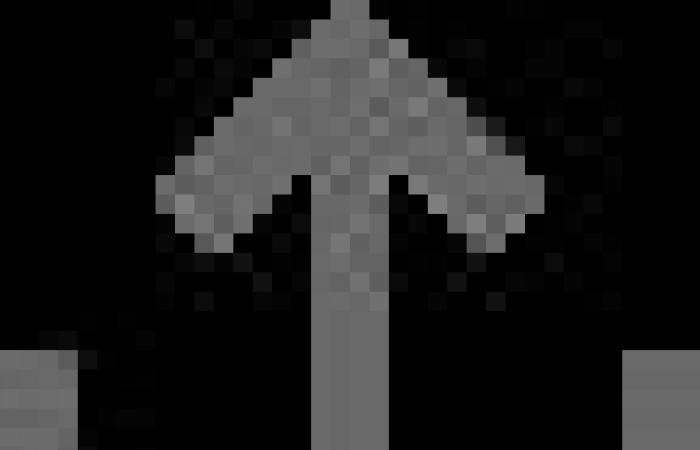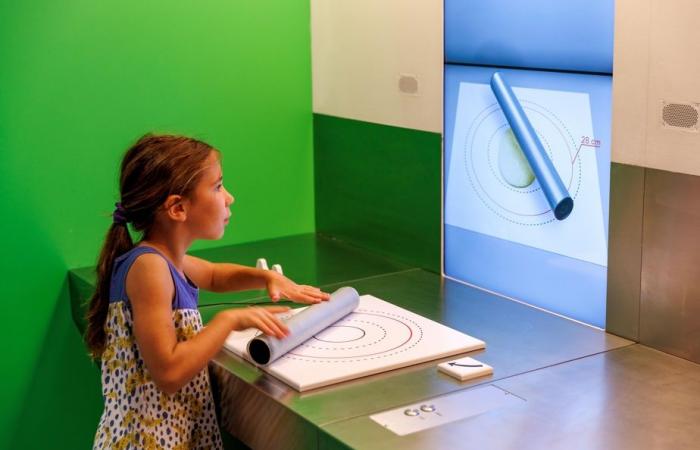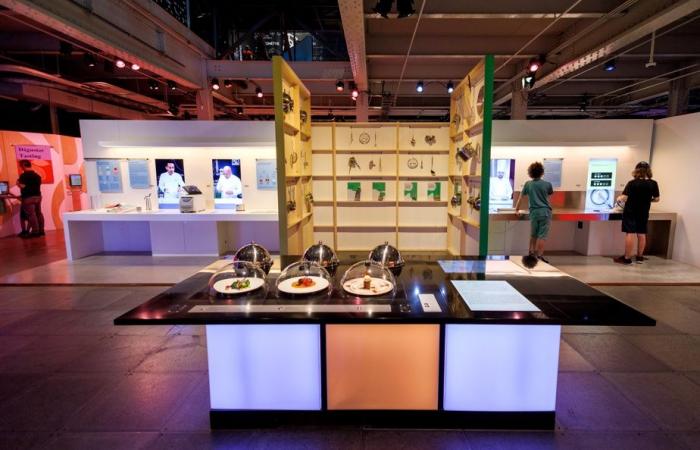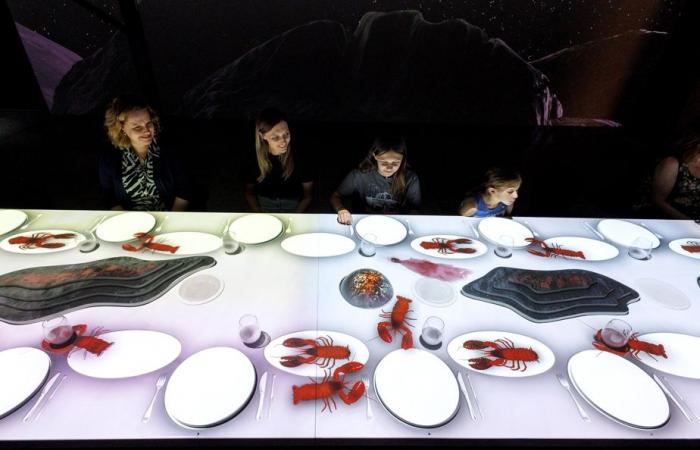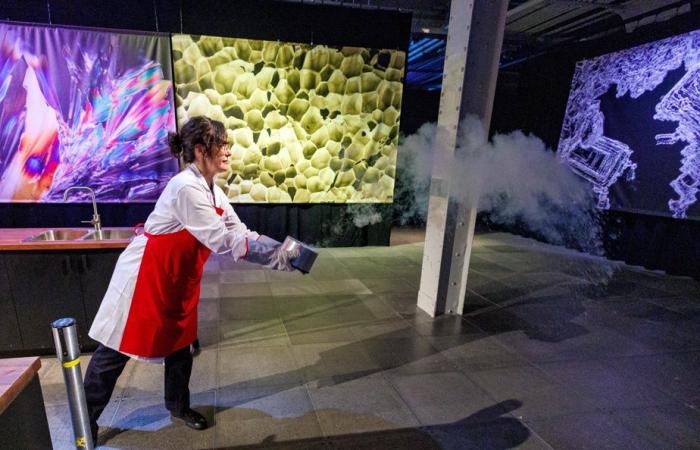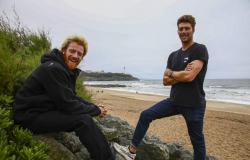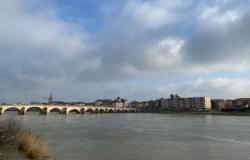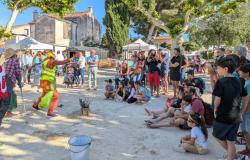An appetizing wedding cake welcomes visitors to the exhibition Banquet, presented at the Montreal Science Center since mid-May. Unfortunately for those with a sweet tooth, it is impossible to bite into it.
Published at 11:00 a.m.
The interactive cake tests not the taste buds of the apprentice cooks who accompany us, but their dexterity and speed. Will they succeed in putting together the macaroons, cream puffs and other delights before everything collapses? The table is set for a visit where we learn while having fun.
« [Banquet]it’s super interactive. It’s multi-sensory,” says Elisabeth Monast Moreau, exhibition project manager at the Science Center.
In this area called “The Kitchen”, visitors are invited to get their hands dirty. After watching a video of a chef explaining a culinary technique, they can test different skills: rolling pizza dough, whipping cream or slicing a vegetable with a mandolin. The performance of the cooks is then rated.
-
PHOTO ALAIN ROBERGE, THE PRESS
The exhibition invites visitors to test different kitchen instruments, such as the mandolin…
-
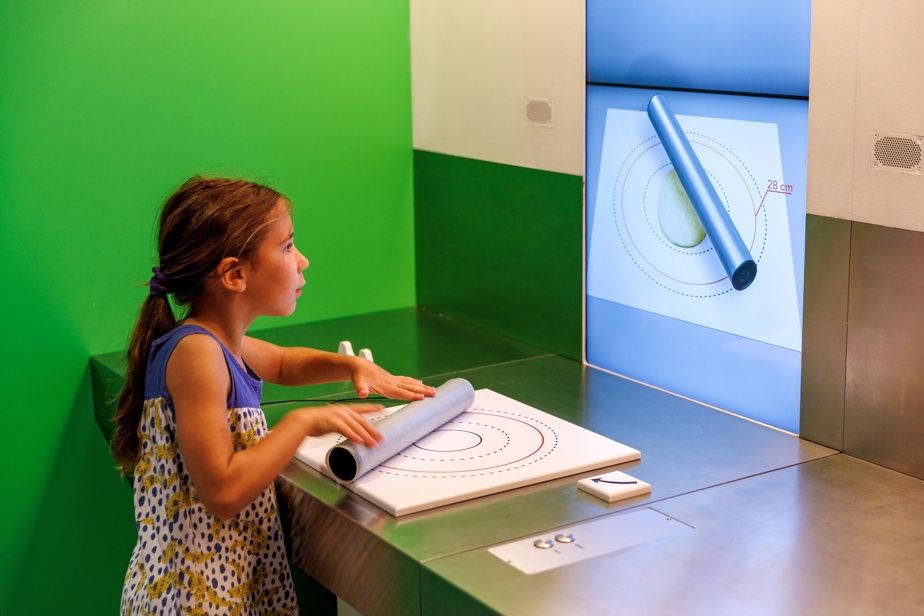
PHOTO ALAIN ROBERGE, THE PRESS
…or the rolling pin.
1/2
“On the day of the inauguration, there were famous chefs who wanted to try it. There were some who only got one star,” confided Elisabeth Monast Moreau to our young cooks who discovered a talent for handling the mandolin.
While children and adults will have a lot of fun at these interactive stations, certain elements of the exhibition will be of particular interest to those who are responsible for the meals in the household. In particular, we learn the secrets of a perfect broth or even which “grandmother’s tips” are really effective in the kitchen. All based on science, obviously.
PHOTO ALAIN ROBERGE, THE PRESS
Elisabeth Monast Moreau, exhibition project manager at the Science Center
The Science Centre is often said to be for young and old. I think this exhibit reflects that well because parents find something to their liking, children find something to their liking, and even young adults who don’t have children find something to their liking.
Elisabeth Monast Moreau, exhibition project manager at the Science Center
Evenings for adults, new at the Science Center this summer, allow you to explore Banquet from 6 p.m. to 9 p.m., Thursdays, Fridays and Saturdays. The visit is then combined with the screening of the film Science and cooking: a journey to the land of the sensesdocumentary dissecting the science behind gastronomy.
The chefs tell each other
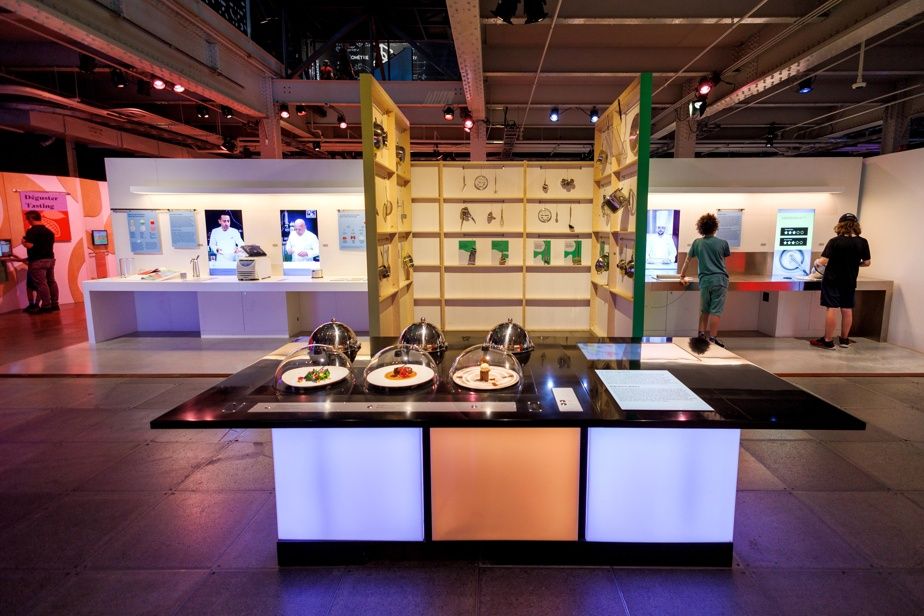
PHOTO ALAIN ROBERGE, THE PRESS
Signature dishes from starred chefs are in the spotlight.
Created by the Cité des sciences et de l’industrie in Paris, the exhibition was developed in collaboration with starred French chefs.
PHOTO ALAIN ROBERGE, THE PRESS
The exhibition includes a section on indigenous cuisine and portraits of local chefs.
The version presented at the Science Centre as a North American premiere has been enhanced with the addition of a section on indigenous cuisine and portraits of local chefs.
We tried to choose chefs who had different techniques or visions. Colombe St-Pierre, for example, works a lot with the terroir and boreal cuisine. […] We wanted to show the gastronomic potential of our territory.
Elisabeth Monast Moreau, exhibition project manager at the Science Center
Normand Laprise, Charles-Antoine Crête, Cheryl Johnson, Paul Toussaint and Cezin Nottaway are the other featured chefs.
Senses awakened
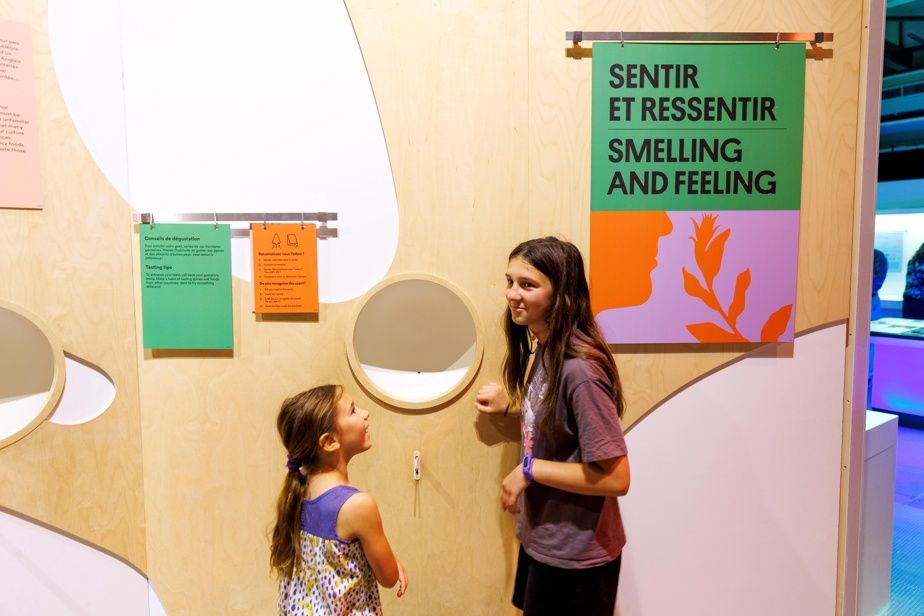
PHOTO ALAIN ROBERGE, THE PRESS
Some stations in the exhibition appeal to the sense of smell. Our young companions fear that a bad smell is hidden there.
The tour continues: time for “L’amuse-bouche”. “We learn how the nose and the eyes are really an integral part of taste,” explains our guide.
It is with a certain suspicion that our young guides take the smell test. Vanilla or parmesan? What scent will emanate from the interactive station?
PHOTO ALAIN ROBERGE, THE PRESS
It is with a certain suspicion that our young guides take the smell test
A few steps away, visitors are offered the chance to eat a jujube. Does its color influence its taste? The result is surprising. “Our eyes tell our brain that it has a certain color. Our brain immediately anticipates what it will taste like,” says Elisabeth Monast Moreau.
Place at the banquet
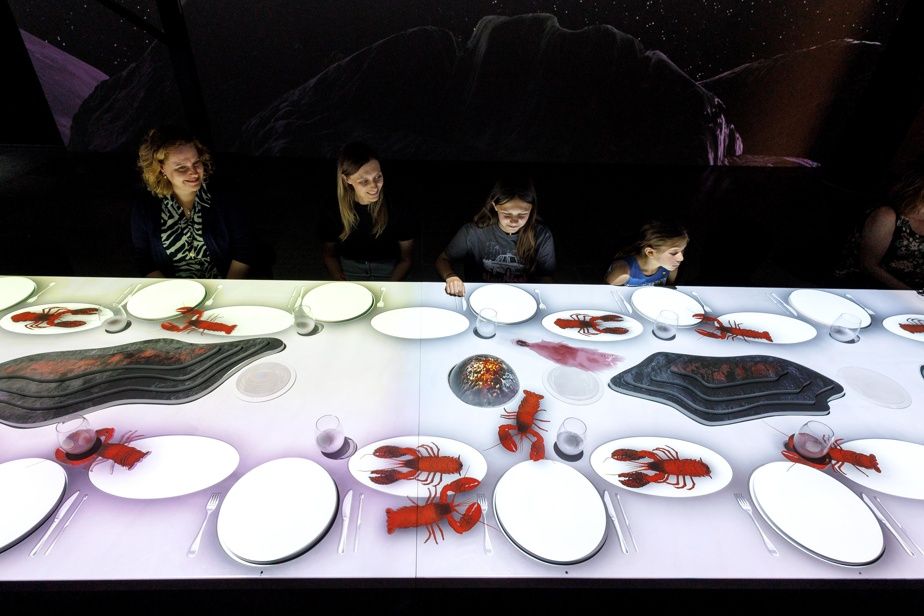
PHOTO ALAIN ROBERGE, THE PRESS
Lobsters – virtual! – wander across the banquet table.
Although there is no food in the exhibition, apart from these treats and a few coriander seeds, it still manages to give visitors the experience of a banquet.
In a cozy space where the walls are made up of large screens, we sit at a long table. Music and projections amaze the guests who experience a multi-course meal with multiple atmospheres. From the butlers who set the table to the dessert accompanied by fireworks to the food that appears on our plates (or runs away from them), this banquet has many surprises in store for our eyes, our ears… and even our noses.
Before you experience this, there is an area that traces the history of banquets and presents the traditions of different countries. “All over the world, we have the ritual of sitting down at the table together, sharing and exchanging,” emphasizes Elisabeth Monast Moreau.
The final
PHOTO ALAIN ROBERGE, THE PRESS
Liquid nitrogen is used in the scientific culinary lab.
How does this exhibition celebrating gastronomy end? By a scientific culinary laboratory – this is the Science Center after all.
Its theme? Physical and chemical changes in food. Popcorn, cotton candy and liquid nitrogen are notably used during this animated presentation which shows food differently.

PHOTO ALAIN ROBERGE, THE PRESS
The Scientific Culinary Lab explores the physical and chemical changes in food.
After spending almost an hour in the exhibition room learning more about gastronomy, flavors and taste, our young chefs realize one thing: Banquet fills the mind with knowledge, but whets the appetite. You will have been warned.
Banquet is presented at the Montreal Science Center until March 16, 2025.
Visit the Science Center website


